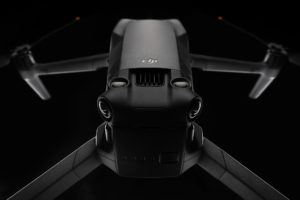 Yesterday, U.S. Senators Marco Rubio (R-FL), Rick Scott (R-FL), and Tom Cotton (R-AR) took another shot at Chinese-made drone tech and the world’s largest drone manufacturer, DJI, while Congress member Elise Stefanik (R-NY) introduced parallel legislation (read text of proposal at link) in the House of Representatives. The Senators introduced the Countering CCP Drones Act, in an effort to add DJI to the Federal Communications Commission’s (FCC) “Covered List”, which “identifies telecommunication equipment that poses a threat to America’s national security,” according to the Senators’ press release, and bans their use in U.S. communications infrastructure.
Yesterday, U.S. Senators Marco Rubio (R-FL), Rick Scott (R-FL), and Tom Cotton (R-AR) took another shot at Chinese-made drone tech and the world’s largest drone manufacturer, DJI, while Congress member Elise Stefanik (R-NY) introduced parallel legislation (read text of proposal at link) in the House of Representatives. The Senators introduced the Countering CCP Drones Act, in an effort to add DJI to the Federal Communications Commission’s (FCC) “Covered List”, which “identifies telecommunication equipment that poses a threat to America’s national security,” according to the Senators’ press release, and bans their use in U.S. communications infrastructure.
The move comes after an article the Washington Post stated that DJI “obscured its Chinese government funding while claiming that Beijing had not invested in the firm.” In the press release, DJI is described as “Chinese Communist Party affiliated drone company Da-Jiang Innovations (DJI).”
“Chinese drone-maker DJI has repeatedly lied about its links to the Chinese Communist Party while collecting vast quantities of Americans’ data,” Rubio said. “The FCC should act immediately to further ban DJI by adding it to its Covered List.”
The move is the latest in a long string of proposed legislation and bans designed to lessen DJI’s impact on the U.S. drone industry. Most recently, Representatives petitioned U.S. Commerce Secretary Gina Raimondo to add DJI to the Department of Commerce “Entity List,” making it more difficult for U.S.-based companies to provide the company with parts or services.
“Communist China funds technology, like drones made by DJI, to spy on Americans and steal their data,” Scott said. “The United States Government should under no circumstance purchase drones made in Communist China and put our national security at risk and that’s why my colleagues and I introduced the American Security Drone Act. The Countering CCP Drones Act is the next step to ensure that federal funds from the Federal Communications Commission (FCC) cannot be used to obtain communications equipment and services produced or provided by DJI. I’m proud to introduce this important bill in the Senate and urge my colleagues to join me in support.”
“Chinese companies are beholden to the Chinese Communist Party. DJI can’t be trusted—we shouldn’t allow its equipment to be used alongside American communications technology,” Cotton added.
This newest effort continues what the tech world has called “the Huawei effect” – an ongoing process of making U.S. infrastructure less reliant on Chinese-made technology.
“DJI drones pose the national security threat of Huawei, but with wings,” Stefanik said. “The possibility that DJI drones could be equipped to send live imagery of military installations, critical infrastructure, and the personal lives of American citizens to China poses too great a threat. Allowing this practice to continue in the U.S. is playing with fire. This Chinese-controlled company cannot be allowed to continue to operate in the U.S.”
The government efforts to limit exposure to Chinese technology in infrastructure have had a ripple effect throughout the drone industry, as state and local governments consider their own limitations: Florida recently proposed limiting purchases to those approved by the Department of Defense’s “Blue sUAS List.”
Despite these developments, DJI still holds a large majority market share in the U.S., including with state and local police and fire departments. Critics fear that some agencies may simply stop using drones rather than invest in an entirely new fleet, as happened, at least temporarily, at the U.S. Department of Interior.
Read more background on the ban on Chinese drones:
- The Ban on Chinese Drones: Lawmakers Set Their Sights on China-Made Tech
- The Ban on Chinese Drones, Part 2: What Happens Next?
- The Latest Executive Order on Drones: the Ban on Chinese and Foreign Entity UAS Expanded
- Proposed Senate Amendment Would Prevent Purchase of Chinese-Made Drones with Infrastructure Bill Funding
- BREAKING: Committee Rejects Ban on Chinese Drone Tech in National Defense Authorization Act
- BREAKING: DOD Statement on DJI Drones

Miriam McNabb is the Editor-in-Chief of DRONELIFE and CEO of JobForDrones, a professional drone services marketplace, and a fascinated observer of the emerging drone industry and the regulatory environment for drones. Miriam has penned over 3,000 articles focused on the commercial drone space and is an international speaker and recognized figure in the industry. Miriam has a degree from the University of Chicago and over 20 years of experience in high tech sales and marketing for new technologies.
For drone industry consulting or writing, Email Miriam.
TWITTER:@spaldingbarker
Subscribe to DroneLife here.







[…] post U.S. Senators Take Another Shot at DJI: the “Countering CCP Drones Act” appeared first on […]